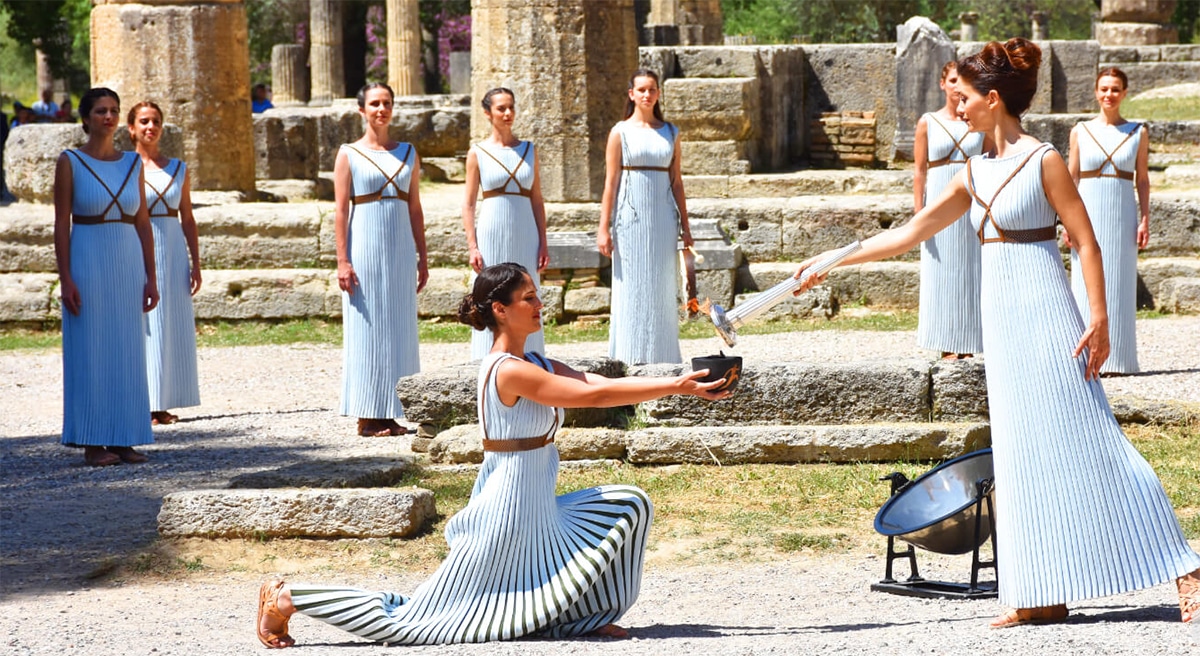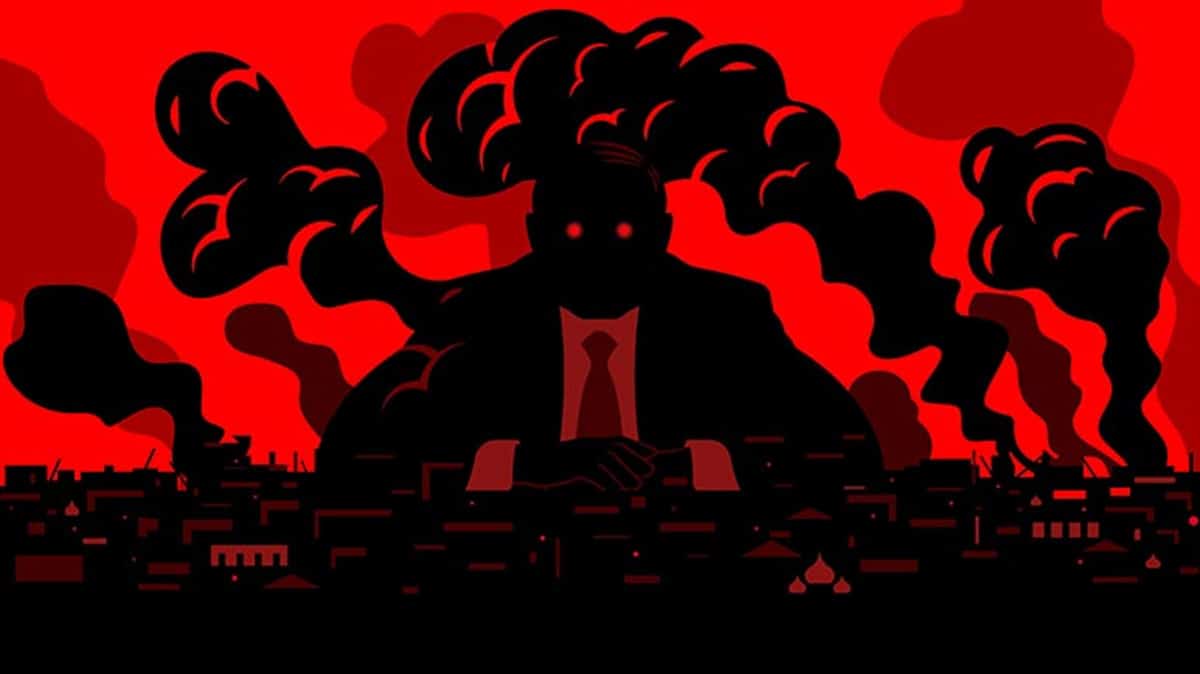

Ritual vs. Porn (Chrono-Politics, Part 5)
O! say can you see by the dawn’s early light,
What so proudly we hailed at the twilight’s last gleaming,
Whose broad stripes and bright stars through the perilous fight,
O’er the ramparts we watch’d, were so gallantly streaming?
And the Rockets’ red glare, the Bombs bursting in air,
Gave proof through the night that our Flag was still there;
– Francis Scott Key, The Star-Spangled Banneri
No doubt our US National Anthem is an example of militarism, nationalism, racism, colonialism, etc…. Nevertheless, I’m a fan. At least at sporting events. There was a time when I refused to stand for its playing, but I was never a kneeler. Kneeling is for church and marriage proposals. In the context of a sporting event, it is a ritual; one I’ve come to appreciate.
We’re about to go compete against one another on the field or court. That’s a play version of war. That could be divisive. So, we first affirm our unity as a nation (I know, I know…). That has the effect of placing the sporting competition within the larger context of a community and also pointing out that it is a limited competition. It effectively says, ‘we’re going to go fight, but it’s not for keeps; afterward we’ll still be one people—it’s just for fun.’
We really don’t have many civic rituals left that symbolically enact our being together as a community. Voting used to be one. That’s been blown all to hell now. Religious rituals still exist within the confines of specific faiths, but under the acids of modernity they have been thinned down and faded as well.

In The Disappearance of Rituals, Byung-Chul Han seeks to give an account of what ritual is, how it shapes the world for its practitioner, and how it is the antithesis of the modern, neoliberal, world. That world is centered on production. Not only goods are produced but so are desires and identities. For Han, neoliberal capitalism is an ontological phenomenon: it reshapes the world and us into its image. Ritual has the power to disrupt that. It is also, on Han’s telling, an essential element in the formation of genuine communities.
Ritual
Han begins the book with this observation: “Rituals are symbolic acts. They represent, and pass on, the values and orders on which a community is based.”ii Symbols have to do with time. Our world has become “symbol poor” according to Han. The perception of symbols moves our perception to that which is “permanent.” Symbols add durability in a fleeting world. Think of the example from above. By singing the National Anthem, in the presence of the symbol of the flag, we connect ourselves to something lasting: we the people.
In this way, according to Han, “[w]e can define rituals as symbolic techniques of making oneself at home in the world. They transform being-in-the-world into a being-at-home. They turn the world into a reliable place,” they render time “habitable.”iii That is, rituals shape our time not towards production but towards habitation, ‘dwelling’, as Heidegger would have put it. Rituals have the power, through their repetitiveness and self-sameness to stabilize life. Production, on the other hand, must erode duration to stimulate increasing production and consumption. Think of the frenzy which the world of advertising conveys to us. Consume this now so you can move on to the next commodity. We probably aren’t even conscious of how de-ritualized our lives have become. Most traditional people’s lives would have been saturated with rituals. There would be the larger rituals to mark the passage of the seasons and significant moments in life: birth, the transition to adulthood, marriage, death. The day would have been similarly pervaded by rituals of eating, working, and praying. The rituals shaped time into a home.

Han attributes the de-ritualization to neoliberal economics, especially to a narcissistic aspect of consumption within a neoliberal order. Everything becomes commodified, including things like our emotions and moral values. Much of our consumption is really emotional consumption: what is being sold is not so much a particular object but the emotions the marketers associate with it. The same is the case with values: this product is ‘green’, this product is ‘fair trade’, this product is ‘pro 2SLGBTQQIA+’, this product is ‘pro freedom’, etc… “The narcissistic process of internalization,” Han observes, “develops an aversion to form. Objective forms are avoided in favor of subjective states.”iv
Rituals, on the other hand, are about form; the forming of time. According to Han, “Every religious practice is an exercise in attention.” In the performance of, or participation in, a ritual, we form time into a completion. “Past and present are brought together into a living present.”v Rituals, to have become rituals, are typically old. We bring the past forward with them. They also point towards a continuation of something. In the moment of the performance a wholeness is present. Further, rituals have a narrative structure: you begin the ritual, you move through the ritual, and you conclude the ritual. To take the example of the Catholic mass: the priest proclaims “the Lord be with you”—we know it has begun. Then the community moves through the whole ritual drama of the Lord being with us in the form of the eucharist. Eventually a priest or deacon says “go in peace” and the community responds “Thanks be to God”—and we know it’s over, that what was proclaimed has been fulfilled and that now that carries us forward. Han observes that we do not tire of the old and the well-formed; hence, to the extent that we are wrapped up in rituals and in the form of attention they foster, we are not good consumers: good consumers must get tired of what they are doing and what they are consuming quickly and their attention needs to be kept turned inward to the insatiable demands of the narcissistic ego. We are prodded to always want the new and the exciting, which by their nature, are not the enduring and stable.
Rituals have the power to “bring forth a community.” Han explains (quoting Hartmut Rosa): “Rituals produce sociocultural axes of resonance along which may be experienced three different kinds of resonance: vertical (e.g. to the gods, the cosmos, time, or eternity), horizontal (within one’s social community), and diagonal (with respect to things).”vi Hence, rituals and the communities they constitute form a protective barrier around people which interferes with the ‘psycho-political’ attempt of neoliberalism to elicit positive emotions which can be exploited.

Festivity vs. ‘authenticity’
The ‘burnout society’ and the ‘achievement-subject’ of the book The Burnout Society, which we examined in the previous essay, are analyzed here under the auspices of the “society of authenticity” in which “All members perform themselves. All produce themselves. Everyone pays homage to the cult of the self, the worship of the self in which everyone is his or her own priest.”vii The fundamental problem with this project, as Han sees it, is that it cannot actually succeed. In the self’s focus on the self, the “social horizon of meaning” is lost. Paradoxically, actual authenticity can’t afford to center exclusively on the self and its manufacture. To an extent, we have to lose ourselves in the community to which we belong and to the broader world which we share in common. Not in the sense of conforming to that society, but in conceptualizing ourselves in relation to these larger realities.
The modern world entails a “compulsion to authenticity;” the bringing of the self under the reign of the market-economic worldview such that we must produce identities much as we produce anything else. It is through things like ritual that the self can be brought into constructive connection with these larger realities.
Further, the “compulsion to authenticity” ends up being a never-ending quest for something that proves elusive. What is needed is closure. The self and our lives need a form which is an expression of limitedness, of definiteness. Specifically, the form of the self is found in narrative. This provides the ‘closure’ necessary to actually be somebody. The market opposes this. A nobody, always in quest of the elusive goal, is an unending consumer of emotions, values, and identities.

Here, like Pieper and Heschel, Han sees the key lying in a recovery of attentiveness, rest (in the sense of leisure developed by Pieper), and sacredness. Central to this is the festival. From Han’s angle, the festival represents a self-presentation of life, “overflowing life that does not aim at a goal.”viii In a festival, life manifests itself to us in its vital potentiality and in so doing “founds a community among humans and between humans and gods…”.ix Further, in this non-goal-directedness and sense of plenitude, an essential element of playfulness is introduced which Han will see as essential to a good and satisfying life.
The antithesis of the festival is the ‘event;’ the consumerist simulacra of the festival. In a neoliberal society, work and production seek to become total, recasting all of existence in their image: “The totalization of production leads to the total profanation of life.”x Capitalism is shown to be the antithesis of religion, or religare (to bind), in that it lacks the capacity to assemble, to bring together in genuine community. This encounter with the sacred (the ‘resonance’ of lateral, vertical, and diagonal relationships) “unites those things and values that give vitality to community…. Capitalism, by contrast, erases the distinction between the sacred and the profane by totalizing the profane. It makes everything comparable to everything else and thus equal to everything else. Capitalism brings forth a hell of the same [i.e., via the process of commodification].”xi
To return to the point about play: “The glory of play goes along with sovereignty, where sovereignty simply means being free from necessity, from purpose and utility.”xii Festival opens up this realm of play (vs production) which we now see is also the realm of freedom. To conclude, we’ll look with Han at three specific areas which have been desacralized, turned over to the empire of production, and are hence in need of the reintroduction of ritual, festival, and play.
Of drone wars, dataism, and porn, but mainly porn

Han describes three transitions: from dueling to drone wars, from myth to dataism, and from seduction to porn. He presents dueling (you know, actual dueling, with swords or with pistols at twenty paces) as a form of “ritualized warfare.” Certainly, dueling was a ritualized affair. There were rules about who could challenge who, how the challenge had to be made, possibly choosing ‘a second’, how the duel was to be conducted, what counted as fair, and other characteristics. It’s the rules that make the difference for Han. The rules denote that dueling is a form of play. Further, he sees the whole mode of conducting war that went along with dueling as ritualized play: the pretty, fancy uniforms, the formality, the rules of ‘gentlemanly’ combat.
Maybe we’re appalled: war a game!? I think what Han wants to show is that war was better as a game than it is under the empire of production. The modern era has seen the technological and productive perfection of war in the form of ‘total war’: war without limits (rules); the application of cold rationality to destruction. We can see this taking shape quite clearly in the American Civil War. Initially, troops on both sides refused to dig trenches to fight from as ‘unmanly,’ ‘unchivalrous.’ By the war’s end, trench warfare prefiguring the First World War had settled in. Further, the war was only won by the North when it put generals in charge who were willing to wage total, rational war. With Ulysses S. Grant, the North found a leader who understood the mechanics of modern warfare. He had under his command more men and more material resources than his opponent could ever muster. He would throw them into combat. If they died in vast numbers to a draw or a loss on the field of battle, he kept throwing them in as happened in The Wilderness campaign. No Union general had ever done that. When you lost, you withdrew to come up with a new strategy. That was the thing to do. Grant understood that he could lose every battle if he had to and still win the war: numbers would guarantee it. With William Tecumseh Sherman, they found a general who understood that to totally defeat your opponent you had to defeat their economy and also their civilian population, not just their army in the field. In his “March to the Sea” through Georgia and the Carolinas he destroyed the economic infrastructure of the south and in his destruction of private property and harsh treatment of civilians he destroyed the psychological basis of resistance (but kindled a hatred that may not yet be quite extinguished). His army tore out the economic heart of the South and destroyed the soul of the Southern people so that waging war became an impossibility for them.

The epitome of desacralized, productive, war for Han is the drone strike. Death and destruction from above without risk to self. In its asymmetry, white-collar operations (drone pilots work in shifts, from behind desks, looking at screens), and sterility, it represents the unimpeded production of death.
Mythology and, to a large extent, early philosophy, represent playful ways of transmitting knowledge. Sacral riddle solving is paradigmatic. Essentially though you’re telling enjoyable stories to convey wisdom. Even in philosophy there was a playfulness and dramatic element to the presentation of arguments. There were rituals of knowledge and of pedagogy.
The Enlightenment, with its ideal of the autonomous knowledge producer, removed the communal and traditional aspects and knowledge production became a serious business. Then came what Han terms the “dataistic turn.” “The human being now has to comply with data.”xiii As in so many ways, the Enlightenment ends up producing the opposite of what it sought. Instead of the autonomous knowledge producer, we get the heteronomous servant of the data. Data-driven medicine, data-driven decision-making, data-driven education, on and on, ad nauseum. Our daily lives and fates hang in the balance of the calculations someone is turning out (or which, very soon, AI is turning out).
The final transition is from seduction to porn. “Seduction is a game. It belongs to the order of ritual.”xiv Sex, by contrast, is functional. It can be subsumed under the mode of production. He sees seduction as “a playful use of power.”xv Porn ends seduction. Porn is narcissistic and transparent. “Political correctness,” Han asserts, “condemns ambiguity.”xvi So, porn is PC. Porn represents the triumph of producerism in the realm of romance and sexuality. Encompassed in the trend is all the contemporary emphasis on technique, pharmacology, and performance.

Further, Han sees porn as the generalized quintessence of the neoliberal regime: “Porn pervades the neoliberal dispositif [the general mechanisms and structures of knowledge that ensure the operations of power within a social system] as its general principle.”xvii Seduction relies on ambiguity, on veiling and unveiling. It also takes time. The not rushing of time is essential. Porn thrives on immediacy, transparency, and mechanical reproducibility. Not to mention, you can just sell it. Its empire, its characteristics, reigns over our bodies, over our use of language, over our production of art, over the very sounds that comprise our music. Ours is a porn culture.
So, what might a countercultural movement look like? Maybe we should fight some duels. Well, maybe we can hold off on literalizing that. Perhaps we can develop ritualized ways of managing conflict so that fewer things are ‘to the death’ and ‘winner take all’. Maybe we can revive telling important stories together and perhaps engage in the game of seeking wisdom together. Perhaps we could log out of the online porn sites and figure out how to seduce someone (there would probably be fewer ‘incels’ if that art were cultivated more). All of them sound pretty good to me. Maybe even dueling (with rapiers to the point of the drawing of first blood, not pistols: even Marx fought a duel; might not have been unrelated to the student drinking club he was a member of… speaking of which, one more thing we might revive).

Subscribe to Winter Oak
i Hendrix of course: Jimi Hendrix – The Star Spangled Banner [ National Anthem ] ( Live at Woodstock 1969 ) (youtube.com)
ii Byung-Chul Han, The Disappearance of Rituals, translated by Daniel Steuer, Polity Press, 2020 (original German edition 2019), p. 1.
iii Ibid, p. 2.
iv Ibid, p. 6.
v Ibid, p. 8.
vi Ibid, p. 10.
vii Ibid, P. 16.
viii Ibid, p. 40.
ix Ibid, p. 41.
x Ibid, p. 43,
xi Ibid, p. 44.
xii ibid, p. 47.
xiii Ibid, p. 81.
xiv ibid, p. 84.
xv Ibid, p. 85.
xvi Ibid, p. 86.
xvii Ibid., p. 89.





0 Comments